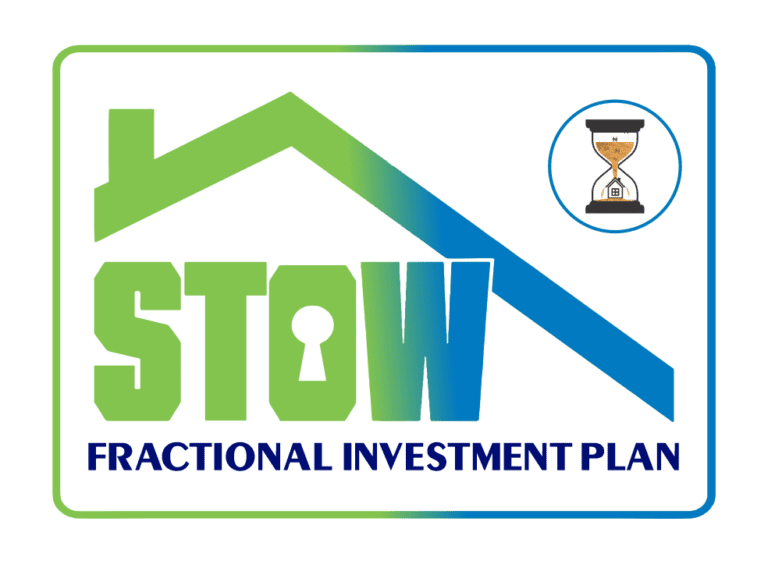Real Estate Investing vs. Stock Market Investing: Which is Better?
Umaru Hassan
Investing is a crucial component of building wealth and securing a financially stable future. When it comes to investing, two popular options are real estate investing and stock market investing. Both avenues offer opportunities for growth and financial success, but they come with their own set of advantages and disadvantages. In this blog post, we will learn the difference between Real Estate Investing and Stock Market Investing, comparing the two to determine which option may be better suited for your investment goals.
Before we begin exploring the difference between Real Estate Investing and Stock Market Investing, we will provide you with a concise overview. You can conveniently navigate to specific sections by clicking on the topics below:
What is Real Estate Investing?
Real estate investing refers to the practice of purchasing, owning, managing, renting, or selling properties with the goal of generating income or achieving long-term appreciation. It involves investing in various types of real estate assets, such as residential properties (houses, apartments), commercial properties (office buildings, retail spaces), industrial properties (warehouses, manufacturing facilities), or land.
What is Stock Market Investing?
Stock market investing refers to the process of buying and selling stocks (also known as shares or equities) of publicly traded companies. The stock market is where these securities are traded, allowing individuals and institutional investors to participate in the ownership of businesses.
What is the difference between Real Estate Investing and Stock Market Investing?
Real Estate Investing and Stock Market Investing are two separate investment approaches that provide individuals with unique opportunities to increase their wealth. The following table outlines the primary distinctions between these two strategies:
| S/N | Category | Real Estate Investing | Stock Market Investing |
| 1 | Nature of Investment | Involves physical properties like residential homes, commercial buildings, or land. | Involves buying and selling shares or stocks of publicly traded companies. |
| 2 | Tangibility | Provides tangible assets that can be physically seen and touched. | Involves intangible assets in the form of shares or stocks. |
| 3 | Potential Returns | Potential returns through rental income, property appreciation, and potential profits from selling properties. | Potential returns through capital appreciation of stock prices and dividend payments from profitable companies. |
| 4 | Risk and Volatility | Generally considered less volatile compared to the stock market. Property values tend to be more stable. | Can be more volatile and subject to rapid price changes influenced by market conditions and economic factors. |
| 5 | Liquidity | Typically considered a less liquid investment as it may take time to sell properties and convert them into cash. | Offers high liquidity, allowing investors to buy and sell stocks quickly, converting them into cash. |
| 6 | Diversification | Provides diversification opportunities through investing in different types of properties, locations, and real estate sectors. | Offers diversification by investing in various industries, sectors, and companies. |
| 7 | Control and Decision-making | Provides investors with more control over their investment decisions, including property selection, renovations, rental strategies, and property management. | Investors have limited control over company decisions and rely on management teams to make strategic choices. |
| 8 | Entry Barrier and Costs | Often requires significant upfront capital, including down payments, mortgage costs, property maintenance expenses, and potential renovation costs. | Generally has lower entry barriers, as investors can start with smaller amounts of capital. Transaction costs, such as brokerage fees, may apply. |
It’s important to note that both real estate and stock market investments have their own advantages, disadvantages, and risk profiles. The choice between the two ultimately depends on your financial goals, risk tolerance, investment timeframe, and personal preferences. Many investors choose to diversify their portfolios by including both real estate and stock market investments to benefit from the unique advantages each asset class offers.
Conclusion on the difference between Real Estate Investing and Stock Market Investing
In conclusion, understanding the difference between Real Estate Investing and Stock Market Investing is crucial for anyone considering investment opportunities. Both avenues offer distinct advantages and risks, and the decision ultimately depends on your personal goals, risk tolerance, and financial situation.
If real estate investing resonates with you, we invite you to invest in the STOW Fractional Home Investment Plan today and unlock the potential for simplified and cost-effective real estate investing. With guaranteed returns and substantial capital gains within a defined time period, this opportunity is not to be missed.
With the STOW Fractional Home Investment Plan, you can enjoy a 10% annualized yield and a guaranteed 10% – 20% capital gain over two (2) – four (4) years on carefully selected properties.

Don’t wait any longer to capitalize on the lucrative world of real estate. Take action now and secure your financial future with the STOW Fractional Home Investment Plan. Contact us today to get started and seize this exclusive opportunity.
Helpful blog posts
- Ways to create passive income in real estate in Nigeria
- All You Need To Know About Fractional Real Estate Investing
- Diversifying your real estate portfolio
- 10 best free property listing websites in Nigeria
- Real Estate Investing 101: Learn the Fundamentals of Real Estate Investment
- Important documents used in a real estate transaction in Nigeria
- How inflation affects real estate investments in Nigeria
- 5 Nigerian Real Estate Investment Blogs to Help You Build Your Wealth
- The Top 9 Real Estate Investment Apps in Nigeria
- Pros and Cons of Investing in Real Estate in Nigeria

[…] What is the difference between Real Estate Investing and Stock Market Investing […]
[…] What is the difference between Real Estate Investing and Stock Market Investing […]
[…] blog posts: Real Estate Investing vs. Stock Market Investing: Which is […]